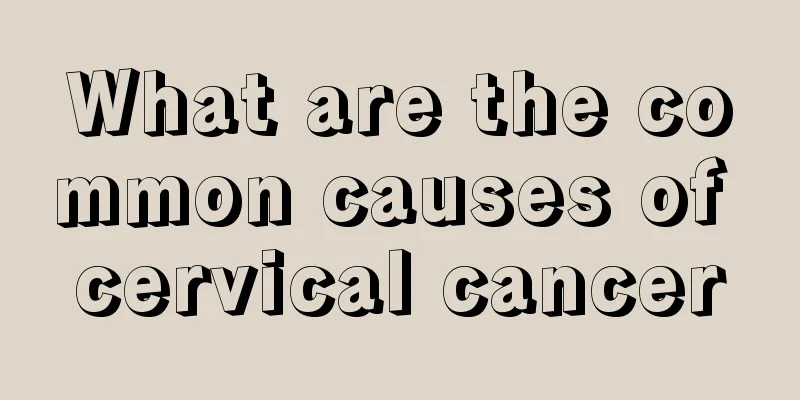Dietary considerations for total gastrectomy for gastric cancer

|
Remnant stomach cancer is also called post-gastric cancer. It can occur in the remnant stomach after subtotal gastrectomy, or in the whole stomach after simple gastrointestinal anastomosis, simple perforation repair or vagus nerve transection. It is generally considered to be limited to gastric cancer occurring after surgery for non-cancerous gastric lesions. If surgery is performed for malignant lesions, it should refer to gastric cancer occurring more than 20 years after surgery. Remnant stomach cancer accounts for 0.4 to 5.5 percent of gastric cancer. The incidence of remnant stomach cancer is related to the first surgical method. Postoperative dietary requirements: Fasting is required after surgery until gastrointestinal function is restored and the gastric tube is removed, which is generally 5-7 days. You can drink a small amount of water or rice soup on the day the gastric tube is removed. Eat a small amount of liquid food on the second day. Eat more liquid food on the third day. Eat semi-liquid food on the fourth day, preferably porridge. Eat soft food on the 5th and 6th days. Start eating normal food on the 7th and 8th days. There is a kind of medicine, which is actually a nutrient. It can be directly absorbed by the human body without gastrointestinal digestion, reducing the burden on the intestines. For example, Ansu, dissolved in water, can be used as a high-quality liquid diet. Fish soup and broth with a little bit of cooked meat residue can be used as a better semi-liquid food. During eating, pay attention to whether there is abdominal distension and abdominal pain. If you feel uncomfortable, you should reduce the amount of food, postpone the transition of diet, and continue eating after you get better. For patients with more special conditions, dietary issues should follow the doctor's advice. Dietary Note: ① Chew slowly: Food in the mouth stimulates the secretion of saliva (which contains enzymes that are beneficial to the digestion of carbohydrates). Chewing carefully can make food particles smaller, and the saliva and food are fully mixed, replacing part of the stomach function. Slow swallowing means swallowing slowly and taking a long time between swallowing to prevent dumping syndrome such as panic and dizziness after swallowing a large amount of food quickly (described in detail later). ② Eat small meals frequently: The capacity of the residual stomach or the connected intestinal segment after surgery cannot be compared with that before, and the body needs a long time to adapt to this change. Clinical experience shows that it takes at least 8-10 months to return to a normal diet of three meals a day. Start eating 5-8 times a day, 50-100 grams each time, and gradually increase the amount of intake and reduce the number of meals according to the patient's tolerance (no abdominal distension and discomfort means good tolerance). Due to individual differences, the adaptation process is different. ③Diverse diet: The variety of food can be selected according to the patient's dietary preferences and habits, but attention should be paid to eating as much nutritious, easy-to-digest high-protein, high-vitamin food as possible. For example, fish, eggs, fresh vegetables, fruits (preferably juiced and drunk), etc. Pay attention to iron supplementation, because after gastrectomy, the effect of gastric acid on iron is lost (turning trivalent iron into divalent iron), causing absorption disorders. You can take some iron supplements orally under the guidance of a doctor, use an iron pot in daily life, and eat more iron-rich foods, such as animal liver, spinach, bean products, etc. Drinking some yogurt is also beneficial. ④ Eating position: For surgeries that remove the gastric entrance, to prevent food reflux after eating, you should maintain a sitting or inclined position; for surgeries that remove the gastric outlet, to prevent food from flowing downward quickly after eating, lie down and rest for about 20 minutes before moving into a free position. ⑤ Take some medicines after meals as prescribed by the doctor: such as digestive medicine, vitamin B12, folic acid, etc., which help digestion and absorption and prevent anemia. Dietary restrictions: Fried, spicy, and irritating foods are the first to be avoided. Raw, cold, and hard foods should also be avoided. Overly hot, overly sweet, and overly salty foods should also be appropriately limited. |
<<: Can people with stomach cancer eat stone frogs?
>>: What are the causes of gastric cancer
Recommend
Is itchy eyes a complication of diabetes?
Diabetes itself can cause great distress to patie...
How to remove facial edema
Edema is a symptom that may occur in various part...
How can I detect ovarian cancer
There are many kinds of ovarian gynecological dis...
How should the body detoxify?
The more toxins accumulate in the human body, the...
How to delay aging more effectively?
Everyone hopes that they can stay young forever, ...
Does tooth enamel have the ability to regenerate?
Tooth enamel is easily worn out, and many problem...
How long can a filling be used_How long can the filling material be used
Nowadays, many people do not pay attention to ora...
How to wash ink off clothes
I believe that in daily life, many friends have t...
Asterophobia
Everyone's perception of things is different....
What is the chance of lymphoma recurring?
What is the chance of lymphoma recurrence? Lympho...
Beware! People who blush when drinking are more likely to develop liver cancer
In recent years, liver cancer has become a major ...
What are the early symptoms of liver cancer? What is the best treatment for liver cancer?
What are the symptoms of liver cancer? Everyone m...
How is lymphoma inherited
This is a problem that many women of childbearing...
Exercise to assist in the treatment of ovarian cancer
Ovarian cancer is a major killer that threatens w...
Explore what is the treatment for bone cancer
Among many cancer diseases, bone cancer is also a...









